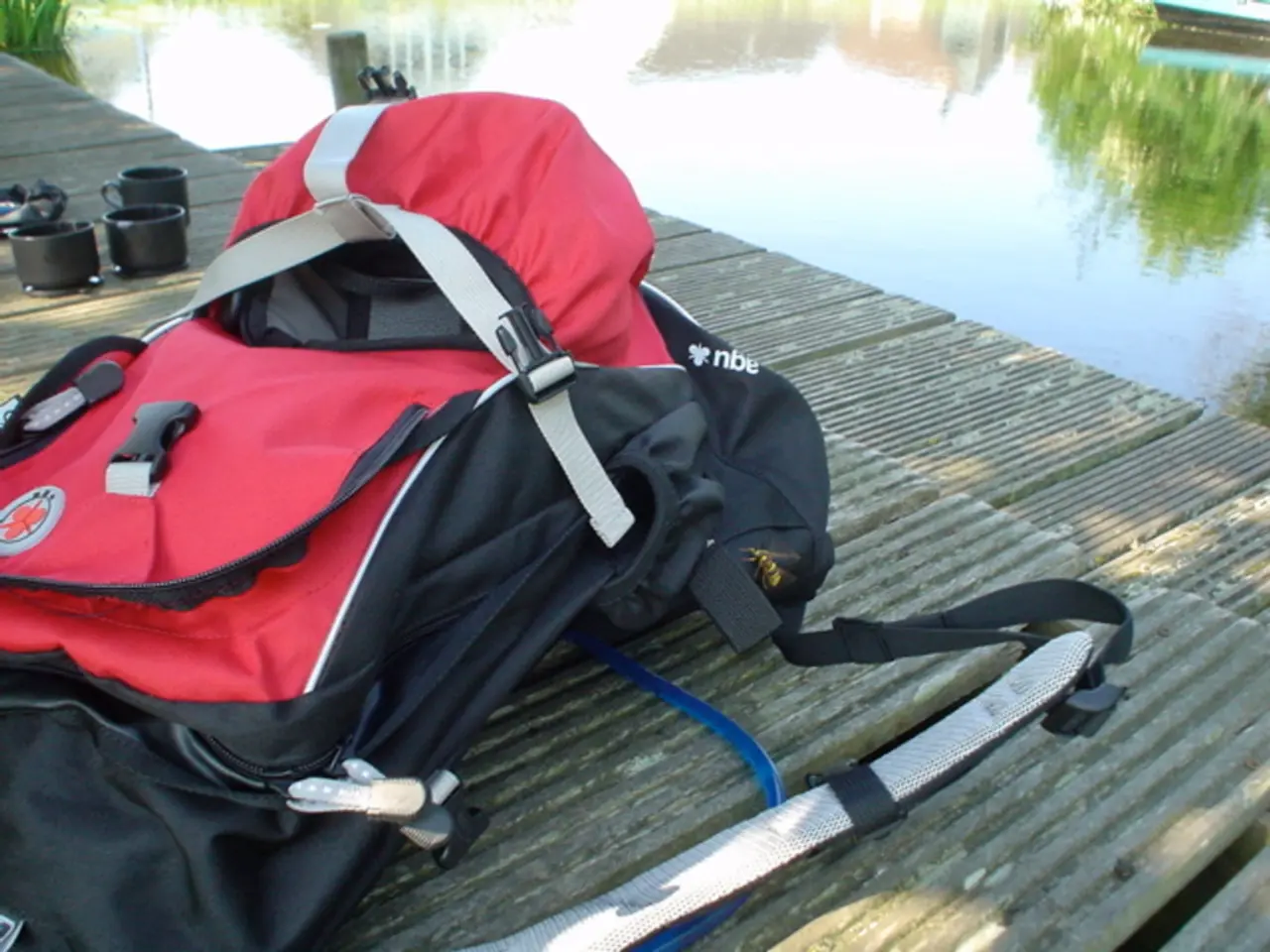Nutrition for Enduring Journeys: Preserving Health Amid Differences in Time Zones
Travelling can be an exciting yet challenging experience, especially when it comes to maintaining a healthy diet. Here are some tips to help you navigate the culinary landscape while staying mindful of your nutritional needs.
Hydration
Staying hydrated is crucial during travel. Drink plenty of water before, during, and after flights to combat dehydration, which worsens fatigue and jet lag. [4] Consider adding electrolyte-rich beverages or supplements to your hydration routine, especially during long flights or in hot climates.
Nutrient-Dense Foods
Maintain a balanced diet by sticking to nutrient-dense foods about 60-80% of the time. [3] Include high-fiber foods like fruits, vegetables, and whole grains to keep digestion regular. [2] Pack healthy snacks or stock up on them once you reach your destination to maintain a balanced intake.
Combating Jet Lag
Adjust your meal times to align with your destination's time zone as soon as possible. Engage in light physical activities to help your body adjust to the new time zone. Establish a consistent sleep schedule and create a conducive sleep environment to mitigate jet lag effects. [2]
Supporting Digestion
Consider taking probiotic supplements to support gut health and digestion, especially if you're travelling to areas with different food types. [1] Use digestive enzymes if you experience digestive issues while eating unfamiliar foods.
Supplements
A daily multivitamin can help ensure you get all necessary nutrients, especially when your diet might be less predictable. [1] Supplements like vitamin C or zinc can support your immune system during travel. [1]
Planning Ahead
Book accommodations with a kitchen or mini-fridge to prepare your meals and keep healthy snacks handy. [5] Stock up on healthy foods before or upon arrival to maintain a balanced diet. [5]
By following these tips, you can maintain a healthy nutrition routine while travelling and effectively manage jet lag and digestive issues. Always consult with a healthcare professional before starting any new supplements.
Remember to choose whole grains, vegetables, and legumes for your carbohydrates. Eat light, nutrient-dense meals when adjusting to a new time zone, focusing on balanced meals that include protein, healthy fats, and complex carbohydrates. [6]
Limit caffeine and alcohol during travel as both can increase dehydration and disrupt sleep patterns. Pack your own healthy travel snacks, such as mixed nuts, seeds, protein bars, fresh fruits, trail mix, and whole-grain crackers, to ensure nutrient-dense, wholesome foods are readily available. [7]
Lastly, be cautious about consuming unpasteurized dairy products when travelling to countries with different food safety standards. [8] Healthy fats from avocados, nuts, seeds, and olive oil are excellent sources of energy. [9] Pack plenty of fruits and vegetables for vital vitamins, minerals, and antioxidants. [10]
With these tips in mind, you're well-equipped to enjoy your travels while maintaining a healthy diet. Bon voyage!
- To stay hydrated during travel, drink plenty of water, consider adding electrolyte-rich beverages or supplements, and be mindful of your hydration levels during long flights and in hot climates.
- Stick to nutrient-dense foods like fruits, vegetables, and whole grains about 60-80% of the time to maintain a balanced diet. Pack healthy snacks to maintain a balanced intake during travel.
- Combat jet lag by adjusting meal times to align with your destination's time zone, engaging in light physical activities, establishing a consistent sleep schedule, and creating a conducive sleep environment.
- Support your digestion during travel by taking probiotic supplements or using digestive enzymes if you experience issues with unfamiliar foods.
- Maintain a healthy diet while traveling by booking accommodations with a kitchen or mini-fridge, stocking up on healthy foods, and packing your own healthy travel snacks like mixed nuts, seeds, protein bars, fresh fruits, trail mix, and whole-grain crackers.





